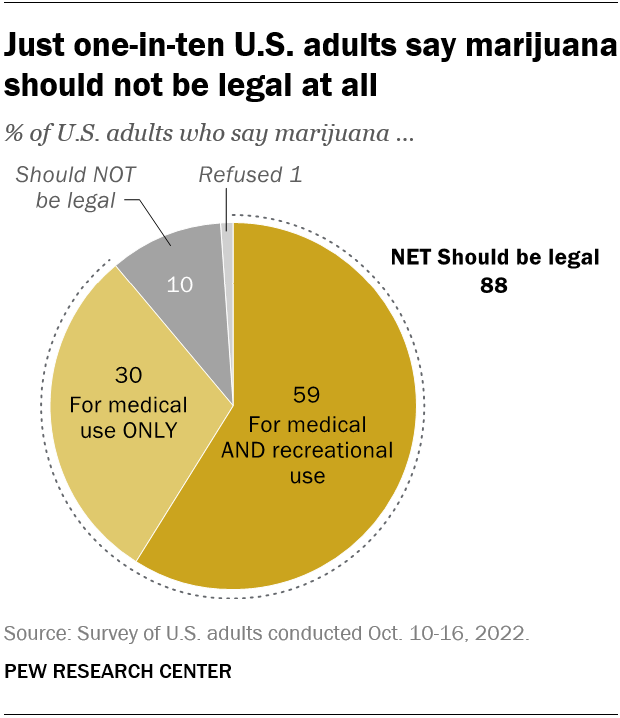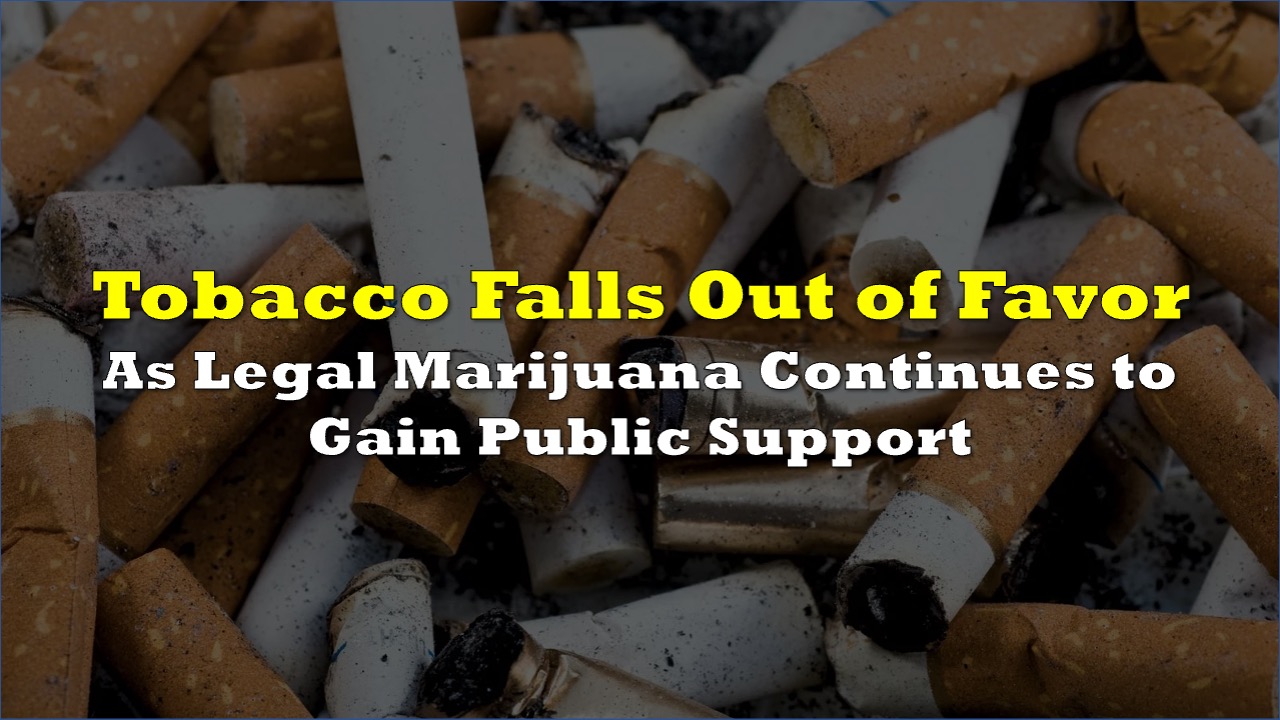American society is witnessing a remarkable shift in attitudes toward cannabis and tobacco. Once upon a time, smoking cigarettes was widely accepted and even considered a social norm. But today, the tables have turned, and more Americans favor legalizing cannabis over keeping tobacco legal.
To highlight this shift in public opinion, The Hill recently compared two polls that measure public sentiment on legal marijuana and legal tobacco. A November Pew Research poll shows that 89%, or a vast majority of American adults, believe that marijuana should be legal, with 59% believing that it should be legal for both medical and recreational use. On the flip side, the study found that only one in 10 adults now thinks marijuana should not be legal.
Those who feel the same way about tobacco are fewer but still make up a significant majority. A newly-released 2021 study by the US Centers for Disease Control and Prevention (CDC) found that 57.3% of respondents “supported a policy to prohibit the sale of all tobacco products.” An even more significant majority, 62.3%, supported a policy to prohibit the sale of menthol cigarettes.

While people have long known that cigarettes are bad (and they are one of the leading causes of preventable death, as the CDC warns), tobacco has remained legal everywhere in the US. Its shrinking popularity only comes after decades of gradual bans on advertising, restrictions on smoking in public spaces and workplaces, rising excise taxes, and almost three decades of the Food and Drug Administration (FDA) listing nicotine as a drug.
The anti-tobacco sentiment has taken a long time to get enough traction. Marijuana, meanwhile, which is dramatically less addictive and is widely used for medical purposes, remains illegal on a federal level — almost three decades after it was first legalized for medical use in California in 1996, and over a decade after the landmark legalization for recreational use in Colorado and Washington in 2012.
And the more policies there are supporting marijuana, the stronger public support becomes. With tobacco, meanwhile, the percentage of American smokers is at one of the lowest levels on record — CDC found in 2021 that only 11.5% of adults smoked cigarettes compared to 20.6% in 2009.
But Big Tobacco is not giving up. Companies like R.J. Reynolds Tobacco Company (Nasdaq: REYN) and Altria Group (NYSE: MO), the parent company of Philip Morris USA, are fighting the proposed menthol cigarettes ban, and have also indicated that they will also resist the proposed legislation to lower nicotine levels to help ease smoking addiction.
At the same time, they are recognizing the decline in popularity and policy proposals as an opportunity to “move beyond smoking” and instead invest in the growing e-cigarette industry. Altria CEO Billy Gifford in late October told investors and Wall Street analysts that his company envisions “to responsibly lead the transition of adult smokers to a smoke-free future.”
A concerning number of people, including young people, are using e-cigarettes or vapes. The CDC found in a 2020 study that 5.66 million American adults vape, and in 2022, about 2.5 million middle and high schoolers said they use e-cigarettes.
The FDA, in its recommendations for how they will regulate tobacco products, has said that it will focus on “being proactive in its activities” and recognized that “there is much work still to do.”
“Our ability to keep pace with these changes will depend on immediate, short-term and long-term actions the center is taking that we believe will position the agency to more successfully implement our regulatory oversight of tobacco products,” FDA Commissioner Dr. Robert Califf said in a news release.
Information for this briefing was found via The Hill the New York Times, CNN, and the sources and companies mentioned. The author has no securities or affiliations related to the organizations discussed. Not a recommendation to buy or sell. Always do additional research and consult a professional before purchasing a security. The author holds no licenses.









